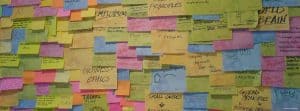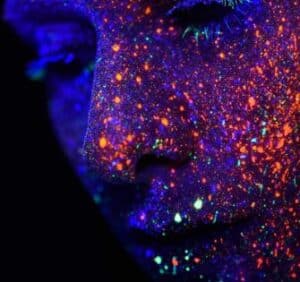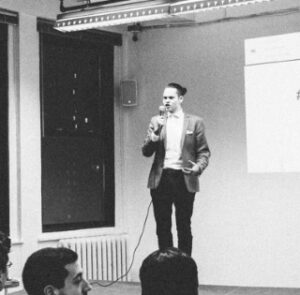The Lavin Agency Speakers Bureau
A speakers bureau that represents the best original thinkers,
writers, and doers for speaking engagements.
A speakers bureau that represents the best original thinkers,
writers, and doers for speaking engagements.
Are you looking for an edge to help you succeed? Good news: You've already got one.
How do you get a competitive “edge” at work and in life? Star business professor Laura Huang says that we don’t need to change ourselves to get the upper hand: we can simply make the most of who we already are. She’s a Distinguished Professor at Northeastern and the Director of the Women’s Entrepreneurship Center, as well as a Harvard professor and the author of Edge. Laura teaches us how to use everything—even our perceived flaws and the systemic biases that hold us back—to our advantage. Laura’s insights into edge will help us overcome adversity by flipping unfair stereotypes on their head and turning obstacles into assets. If we combine our edge with hard work—Laura’s revolutionary idea of “hard work, plus”—we’ll have the tools to compete and win.
“We’re all looking for an edge. But where does it come from? Laura Huang provides the answers. Be authentic and distinct. Provide value to others. And turn adversity into advantage.”— Daniel H. Pink, author of To Sell Is Human
How do we find the elusive “edge” that will help us gain success? We don’t need to go searching too far, says Laura Huang, acclaimed business professor and author of Edge: Turning Adversity into Advantage. If we learn more about our strengths and weaknesses and put them both to work with grit and determination, we can empower ourselves to create personal success—and find our edge. Laura’s talks teach us how to use that edge in a strategic way, drawing on examples from Olympians to Louis Vuitton assistants-turned-executives; along the way, she’ll show you that staying sharp means understanding and building on everything about yourself, even the flaws that you thought would be an obstacle.
In the working world, others may misunderstand or stereotype us as less capable. But this very disadvantage is what gives us the opportunity to shape the relationships and connections we make. We can learn to flip these stereotypes into something that propels us to success. Laura shows us how understanding how others perceive us will set us up to achieve more, and how communicating well creates an environment where we can use our edge and stay sharp. She teaches us practical strategies for making our differences work for us. Laura’s ground-breaking research also includes her work on “gut feel”—that sixth sense often written off as fake. She conducted dozens of interviews with investors and entrepreneurs, revealing the vital role that gut feel plays in managing complexity and risk—and the difference between big wins and playing it safe.
Laura has never played it safe in her own life, from her work at Harvard to her years as a high-powered consultant. New York Times bestselling author Seth Stephens-Davidowitz says that Laura shows us how to “take control of our toughest challenges with poise and authenticity”, giving all of us a model for what it means to use our natural talents to the fullest. She’s a professor at Harvard Business School, where she studies relationships and bias in entrepreneurship and at the workplace, and has previously held a faculty position at Wharton. She was named one of the 40 Best Business School Professors Under the Age of 40 by Poets and Quants, and was named to the global Thinkers50 Radar list as one of the top thinkers with the potential to change the world of theory and practice. Laura has been featured in The Wall Street Journal, Forbes, USA Today, and Financial Times, where she’s changing the way that we think about ourselves.
Author of The Age of Cryptocurrency and Our Biggest Fight Co-Host of the Money Reimagined Podcast MIT Media Advisor

Global AI Advisor CEO & Co-Founder of XLabs and Ribo One of Forbes’ 30 Women in AI to Watch Artificial Intelligence Pioneer
CEO of Trend Hunter New York Times bestselling author of Create the Future
Prof. of Social Psychology & Organizational Behavior at Stanford Director of the Polarization and Social Change Lab
Performance psychologist Former Director of Mental Conditioning for the New York Giants Author of Life as Sport
Author of Rage Becomes Her and The Resilience Myth Award-Winning Journalist Co-Founder and Director of the Women’s Media Center Speech Project

Author of Grit, the #1 New York Times Bestseller | Pioneering Researcher on Grit, Perseverance, and the Science of Success

Pulitzer Prize-Winning Creator of The 1619 Project | Executive Producer of the Emmy Award-Winning 1619 Project Hulu Docuseries | MacArthur Genius
Nike's Former Chief Marketing Officer | Author of Emotion by Design

New York Times Bestselling Author Of All Boys Aren’t Blue and We Are Not Broken | Emmy Nominee | LGBTQIA+ Activist
CEO of The Atlantic | Former Editor-in-Chief of WIRED


Biases and inaccurate perceptions exist in the workplace. But if we find our edge and flip the narrative, we can use these perceptions to our advantage and create an inclusive organizational culture of belongingness. In this talk, Laura Huang explores the research that’s been done on workplace culture and organizational climate, and shows us the actions we can take to make a difference. She empowers us with practical tools and tactics to leverage our diverse backgrounds and career paths to support, inspire and make a sustainable impact. Laura shows us how we can communicate clearly, develop an inclusive culture from the outside and from the inside, and foster an environment where everyone can bring their unique edge to work.

Despite the transformative nature of artificial intelligence and data analytics, what underlies these technologies and tools are human capabilities, innovative uncertainty, and complex information sources. If we can include our own authentic human intelligence in the conversation around AI, we’ll gain a more positive, balanced, and sophisticated AI strategy.
Drawing from her award-winning research on perceptions, signals, and human behavior, Laura Huang integrates her human-centric perspective to show how the artificially-intelligent (AI) perspective is only as good as our ability to recognize the authentic and a behaviorally-intelligent perspective.

When we think about “inclusivity,” most of us shift our mindset to center underrepresented groups. Yet Laura Huang argues that inclusivity entails including all voices without bias and provides a ground-breaking approach where we can aim for, and talk about, inclusion in a way that doesn’t lead to the political or emotional polarization.
With her realistic approach, inclusion is truly all-inclusive. She offers ways that leaders can promote both outside-in (macro, big-picture) and inside-out solutions (practical and empowering). Filled with real-world examples and actionable strategies, this talk inspires leaders to think of everyone’s experiences in a much broader way, going beyond mere representation and ultimately building stronger, more resilient teams that thrive on the richness of varied experiences and perspectives.




It’s one of the most polarizing pieces of advice that we hear: “Go with your gut.” In this talk, Laura Huang discusses her research on decision-making in organizations, and why the question shouldn’t be about data-driven decisions versus gut feel-based decisions. Instead, effective organizational outcomes are the result of understanding the set of rules that are inherent in any complex decision—which dictate whether more data actually helps us make better decisions.